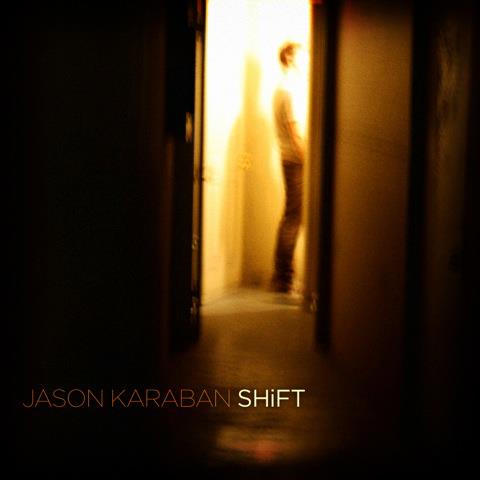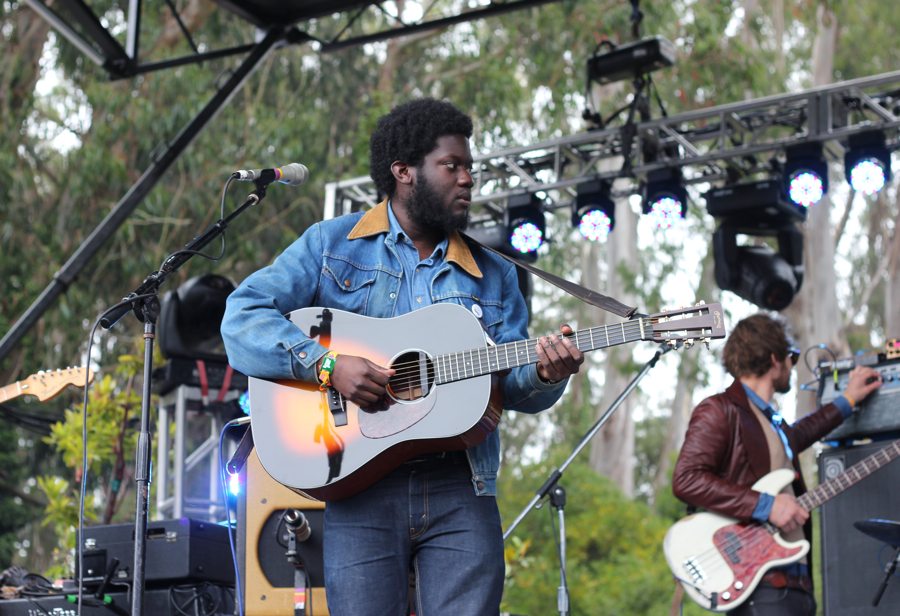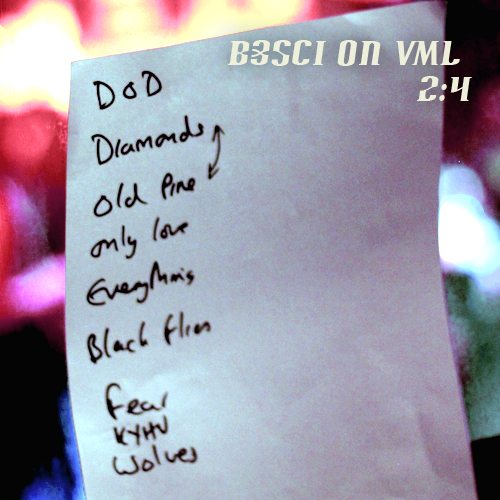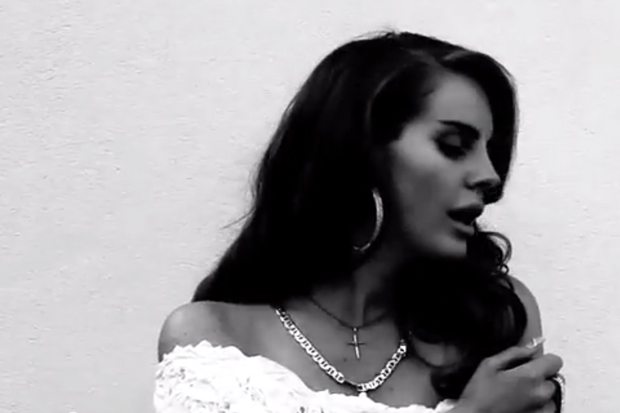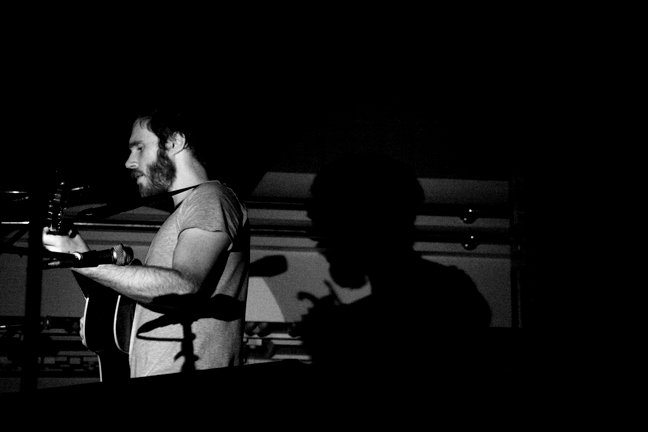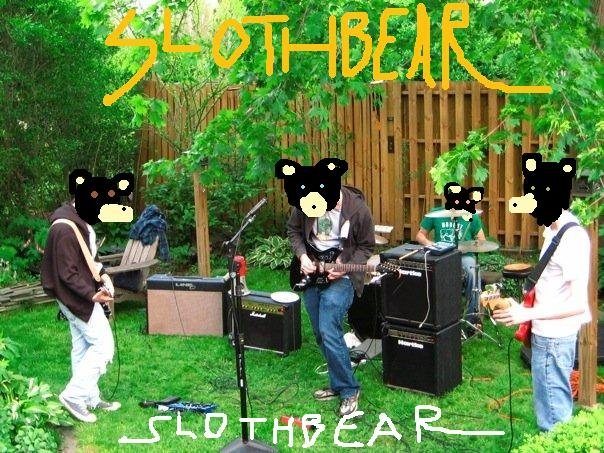
B3|fam Chris Gedos recently had the chance to interview a NY group who’s been ample in our discussions within this last year. So it’s great to learn a little more about Slothbear – a band with much more to be learnt about.
CG: A little background. How did Slothbear come into existence? How long have you been playing together for? Who mans what instruments and do you trade off depending on the song?
CH: I wrote to Josh on MySpace in 2006 because I liked his and Doug’s high school band, and kids who played music and were into ‘indie rock’ were impossible to come by. Long Island was pretty much dominated by emo at the time, and may still be for all I know. Ian and I played as a two piece at the time, and we all met at the Jericho Diner, which has since been demolished but was immortalized in all its Google Earth grandeur on the credits page of Qids. We became fast friends and would moonlight in each other’s bands, a tactic that proved hugely influential on the indie scene in Ridgewood, New Jersey.
JG: Each of us led our own band. There was the goofy, very sappy power pop band, The Electric Sentiments, which I fronted, Doug played guitar and Craig played bass in. Then there was Nancy Reagan’s Enduring Love, Craig’s sorta bratty noise rock band, wherein I played bass and Doug and Ian traded off playing drums. Doug fronted this pretty serious band called Ether Switch and Ian had his pet project, Sexually Active Girls, neither of which involved Craig or me.
I’d been trying to put Slothbear–a collaborative, egalitarian band for us four friends–together for a while but it didn’t really crystalize until early 2008, at which point we became the quartet we are today. We started out with pretty rigidly defined roles: Craig and I singing and playing guitar, Doug playing bass and Ian playing drums. When we were tracking
Qids, an album that consists literally of nothing but sounds made by the human voice, bass, drums and electric guitars, Doug started playing around with harmony vocals. On Canter On we all branched out: Craig and Ian play piano, I play bass and some acoustic guitar and Doug sings lead vocals. Now there’s much more flexibility in our roles in the band.
CG: We didn’t hear about Slothbear until Canter On. Can you tell us a little bit about the recording and release history of Qids?
CH: Before Qids we’d only really released a six song, self-titled EP via a netlabel called Rack&Ruin. It’s our only record that Doug hasn’t produced, so I took it upon myself to record the whole thing on a four-track my grandpa gave me, which by then had a broken input and could only pick up the built in mic. Everything — mistakes and all — would go through that, and then we’d overdub more guitars. To top it off, I for whatever reason took it upon myself to crank the treble as far as it would go. Doug made two pretty legit records in high school, but for the rest of us, Qids was the first proper LP we’d ever worked on, and it took a very long time. Doug’s better equipped to go in depth, but on my end, I spent the better part of a year’s time creating static visuals to represent every song, compiled in an art booklet with the disc inside. Only the first 50 copies featured all the art, and printing it cost us nearly as much money as mastering the record, so we probably won’t get to do it again.
DB: Recording Qids was actually the core of my senior project at NYU. I studied recorded music in a selective and theoretically prestigious program, and in order to graduate, I had to produce the album and draft an in-depth business proposal for its success. In the end, I had to “pitch” the record to a panel of industry big wigs, Powerpoint and all. I think the guy who recorded Sublime told me the vocals were mixed too low.
CG: How did the recording for Qids compare to Canter On?
CH: Most of Canter On was done live since the space allowed for it. “Goodnight, Retrograde” is actually several different live improvisations, expertly spliced by Doug Can-style. To date we still can’t play it live.
JG: The most significant difference between the process of making Qids and Canter On was how we wrote. The way we wrote the songs on Qids was usually just that Craig or I would come in with “a song” and just play it in front of the others. Before even hearing the whole song or knowing its structure, the rest of us would come up with something on the fly and start playing along. We’d play it at most twice and then we’d move on to playing something else. Besides the fact the composition of the songs themselves, like “Galloping” or “Goodnight, Retrograde,” was way more collaborative, we started sharing ideas about where we thought the songs could go and how we could improve them. When we were writing Qids, we would literally get angry at each other for stuff like that.
Canter On was written and arranged over a month’s time, but we did more talking about those five songs in that one month than we did on even the most collaborative Qids tracks, over the course of two or three years.
DB: Recording Canter On was my stab at the Albini method of production—record everything as quick and as live as possible. The experiment yielded mixed results. Most of the recording took place over a couple of days and that was cool, but mixing the EP took months! I probably won’t work that way again until I’m more self-assured about getting the sort of results I’m looking for in a short amount of time. Editing “Goodnight, Retrograde” felt liberating to being given thirty minutes of jamming and then having to construct a song out of it, without these clowns getting their grimy hands all up in the honeypot. It was a new experience, to say the least. Furthermore, I like that the final product sounds a few shades more three-dimensional than the rest of the EP—of all the songs, it does the best job of capturing the sound of Josh’s old living room. Come to think of it, I spent a lot time in that space as a teenager, so it’s actually quite nice to have this sonic photograph to remember it by.
CG: You guys sort of vacillate between straight-forward Rock and something more experimental. Does that happen on a song by song basis, or rather something you try to identify within a particular cut?
CH: Whenever I listen back to Qids I think it’s funny how many unabashedly ‘Rock’ songs there are because when we were writing and rehearsing that record, I was really into Animal Collective, and Josh and Ian listened to lots of hip hop. And now that we’ve come to terms with our love of The Rock, our newest songs are weirder and mellower. Josh and I often play in our own alternate tunings, and have since the beginning of the Slothbear Era. I guess it’s like Thurston Moore said, ‘when you’re always playing in standard, you’re sounding pretty standard.’ (no diss to the Beatles).
DB: Rock, being badass… these things are of a surprising importance to me. Although I’ve aspired to be innovative and “weird” all my life, I’ve found that there’s always someone else standing there to outinnovate and outweird you when it counts. And so I’ve decided it’s best to just to say ‘fuck it’ and join the party that is Straight-forward Rock.
None of this really has to do with my approach or artistic intent in Slothbear, but I do think it bears noting.
CG: We’re in love with the dual lead guitar. What are your ideas and ideals for how a guitar band should sound?
CH: I think it’s cool that anyone considers us a dual lead band, because Josh and I have very different ways of ‘stepping out’ on guitar. Not to burst any bubbles, but the two solos on “White Christmas” are just different Josh takes, and other than the two chords and some feedback, all the six-string insanity on “Djam” is Josh as well, at least until those arpeggios come in. I’ve always identified most with guitarists like Johnny Marr, who does really ornate and dense things but who never gets truly heroic on the axe. I’d call it kind of a ‘lead rhythm’ guitar, because it’s not just some strummy bar chords in the background, but it’s not melting faces, either. The intro for “White Christmas” is kind of my humble, depraved little nod to that school of guitar. We’ve always been very cognizant of our ‘tandem’ dynamic in writing parts, although ironically Doug is far and away the best guitarist in the band. I just take solace in the fact that a blogger recently described my guitar on G’nite Retro as sounding like “crazy ass ray guns.”
Other than obvious teams like Television or Sonic Youth, a personal fave of mine is Women, just the way they played off each other and were so texturally nuanced and subtly complex, I think that’s what I find most engaging. An active band who do it really well are Strange Shapes from Brooklyn.
CG: You use these dynamic background vocals very effectively and non-traditionally, thinking of “Galloping” and “White Christmas” in particular. Does something spontaneously harmonic happen during recording or are these vocals written into the song?
CH: We’re actually very self-conscious about our singing, so thanks! Josh and I have vocal-only practice twice a week to try and tighten up our trouble spots, and it’s definitely the ‘final frontier’ in my mind as far as becoming a tight live act goes. “Galloping” was an instance of Josh playing the main riff while goofing around and me pouncing on it even though he didn’t think it was much. I put some parts around it and showed it to him, and we went from there. I distinctly remember the two of us walking around campus talking shop, each asserting that our own vocal melodies for the chorus were better despite not even hearing each other’s ideas. That mentality is indubitably endemic to how the song developed vocally.
JG: Those songs being weirder vocally stemmed directly from the fact their music was written collaboratively. “White Christmas” was pretty conventional, I wrote the music for the verses and Craig wrote the chorus. When it came to arranging the vocals, we ended up trading verses and each singing our own part to the chorus. I’m a sucker for wordless “ooo-ing” vocalizations in the vein of “Cut Your Hair,” which go alongside ith Craig’s singing words. “Galloping” was trickier though, because its structure is less Josh-part-Craig-part-Josh-part-Craig-part. We both had a melodic vision for the song, so rather than fighting over who got to sing it, or one of us singing words and the other “ooo-ing”, we decided to just each do our own thing.
By the time we recorded “Galloping” all our parts were composed. Two sets of lyrics were written and recorded never having been shared with one another. However, my “ooos” on “Goodnight, Retrograde” and “Wide Berth” were written completely on the spot and premeditated in no way.
CG: At the end of “Wide Berth”, is the sound after the repeated lyric a clicking of the tongue? If so, brilliant!
Slothbear – Wide Berth
CH: Yep! It initially just had a conventional, melodic resolution but I think I was listening to Syd Barrett-era Pink Floyd around the time of recording and was into the idea of just making wacky mouth-sounds. I’ve been likened to both an Australian and a squirrel on this track, so there’s that. Ian actually thought the clicking was his ride cymbal.
GG: There’s a wistful existentialism to the lyrics, such as “In the end, in the end, you’re just as small as all your friends,” (Don’t Taunt a Tiger) and “If you love someone you’ll let them run and go have fun.” (Ex-teen) Can you tell us a little bit about autobiographical inspiration and possible literary influences?
CH: I don’t mean to sound snarky at all when I say I’m always psyched to see the different transcriptions of the chorus to Tiger (laughs), not to break the fourth wall but I’ve always wanted to bust out “(laughs)” in an email interview, though Josh stole my thunder all over this thing, but the actual lyrics are “In the end, in the end/Justice mauls all your friends.” Josh and I talked about how it’d be funny to write a song about the tiger that mauled those kids at the San Francisco Zoo when they harassed her a few Christmases ago, and I put it into practice. Yours is probably a more cutting commentary, though. I think our friend Noah actually had your version verbatim, but I’m not sure. The guitarist in his old band once drunkenly told us that his whole family sang “INDIANS, INDIANS!” in the car, and my pal Hank from Spirit People thought it was “In and out, in and out/This is what it’s all about.” How lascivious!
JG: I think one of the things that is cool about lyrics is the subjectivity of what the “real” lyrics are. I’ve had some fairly profound experiences with lyrics to a song only to discover that I’d misheard them but that never changed how they impacted me. as for “Ex-teen”…
When I wrote “Ex-teen” I was looking to write a cathartic break-up song but something went wrong and I got introspective and wrote something that felt like a coming of age. I was shy about the song being so introspective, so I tried to focus on the object of the song (the girl I was sad about) rather than its grammatical subject (yours truly).
Most of “Ex-teen” is set on this secluded beach that I almost drowned at two summers back. I was 20 then, an ex-teen, visiting my then-nineteen-year-old, then-girlfriend. I sing “Got nipped by minnows in the bay, ex-teen. The teen’s areolae were…,” but it sounds like “Got nipped by minnows in the bay. Ex-teen, the teen’s, areolae…,” what with the embedded clause, characterizing the presumed titular character as being a teen. Playing around with sentence structure and punctuation allow the lyrics to mean something different in print than they would just being heard.
The song is about recognizing my impulse to settle settle down with someone and coping with the fact my still-teenaged lover is not on the same page as I am, not necessarily because she doesn’t love me but because she is too young to love me the way I love her. Sometimes I get really serious when I write songs. On the next record I’ll have better jokes.
The writers whose ideas and ways with words contribute to how I think and the aesthetics of my writing most are Joanna Newsom, Thomas Pynchon, David Foster Wallace, Milan Kundera and Bill Callahan. Lil Stevie Malkmus, too.
CG: Some in the blogosphere have compared Slothbear to Pavement. Is it an apt comparison, or do have a better band to complete the sentence: “If you like _______, you will like Slothbear.”
CH: Josh and I are probably to this day administrators of the Facebook group “Pavement Is the Greatest Band Ever” (Bob Nastanovich joined). As cherished a band as they were and still are to us, I think I speak for all of us when I say that slacker ethos are fairly antithetical to our approach to live music. Which isn’t to say that we didn’t have a great time seeing them on the reunion tour—we even conned people into thinking we were opening! Brooklyn Vegan and Consequence of Sound both listed us as openers for Central Park SummerStage, and QRO Magazine emailed us asking for a press pass. I told them we could do the interview in the crowd, Among the People. They declined.
CG: Greenpoint vs. Williamsburg? DiMaggio vs. Mantle? Jets vs. Giants?
CH: I work in Greenpoint, and I often find myself driving around Williamsburg, so neither of those. Bushwick is the ‘hip’ one now but while we play there a lot we’re kind of outsiders. Mantle is the better player and the more likable guy… DiMaggio was kind of a stiff whereas Mantle was like a hilarious frat dude. I’ll go Maris, the true homerun champ, for my dad. I’ve been a Giants fan since the tail end of the 2001 season, and I have the Kerry Collins jersey to prove it.
DB: Ultimately, I find myself roaming Williamsburg more often than Greenpoint, but that’s because I’m a yuppie at heart. Or maybe it’s because when I asked a girl where I could find another “unattainable girl genius,” she told me to “try Bedford Ave” (clearly referring to between Metropolitan and N 9th or10th).
Haha, “bears noting.”
CG: What’s next for the band? Any plans to hit the West Coast this summer wink wink?
JG: We’ve been rehearsing this eighteen song batch for over a year now and calling it Grey and Depraved. Those should start turning up soon, over the course of a couple singles, an album and an EP. That batch includes “Agonistes” and “Yorkshire Sash,” which there are decent videos of, some heavily reworked older tracks that have appeared in other live clips or radio sessions like “TXTMSG Never Sent” and “Tucked in Trees” and a bunch of other songs we’re pretty excited about like “Ranch Row,” “JZ,” “Please Don’t” and “Birds,” to name a few.
We’re also finishing up a video for “Wide Berth,” which should be a hoot.
CH: I’m currently in the throes of booking us a grossly ambitious cross-country ‘international’ tour to Vancouver and down through California.
DB: I’m working on a solo EP at the moment, but I plan on wrapping that up soon in order to start working on other projects, primarily the next SB album. I’m also very eager to get on the road with the band this Summer and begin filming our tour document/internet miniseries, The Torbus Diaries. The shows will be fun as well.
Slothbear  (Facebook)
(Facebook)
![]() (Facebook)
(Facebook)